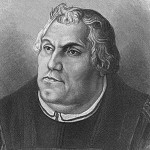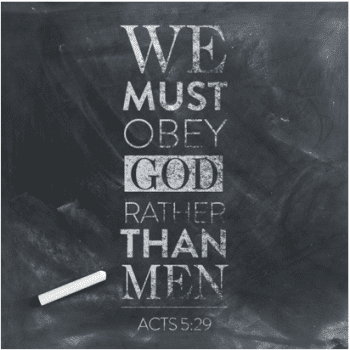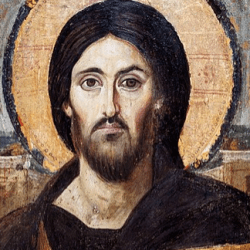Lutherans are known for their distinctions: law and gospel, sin and grace, saint and sinner, etc. One of these distinctions is that between the kingdom of the right and the kingdom of the left. In popular terms, this is often called the “two kingdoms,” or sometimes the “two realms.” In some contemporary discussions, particularly among Reformed believers, this is also sometimes called “Escondido Theology” due to the theology of several professors at Westminster Seminary in California who adhere to their own concept of two kingdom theology.
One of the most common misconceptions about the two kingdom distinction is that the kingdoms refer to the church and the state respectively. In this context, Lutheran doctrine seems to conform to the post-enlightenment concept of the separation of the church and the state. While some Reformed theologians who have taken on the “two kingdom” moniker have used the term in a way that does seem to have more of an identity with American tradition than traditional Reformation theology, Luther did not separate the church and the state in such a manner.
Luther describes the kingdom of the right as a spiritual kingdom. It refers specifically to the kingdom of grace, whereby God saves his people through Word and Sacrament. God’s kingdom consists in the passive righteousness of Christ being granted to people as they are saved. The kingdom of the left, on the other hand, is not simply the state. Rather, it is everything that has to do with one’s bodily existence in this world. Luther explains:
There are two kingdoms, one earthly, the other heavenly, and they must be carefully distinguished. In the earthly, or temporal, kingdom tables are set, and people eat, drink, and sleep, ministering to their physical necessities…But in the kingdom of heaven the banquet and the food are altogether different: Here the master of the house and banquet host in the heavenly Father, Creator and Lord of heaven and earth. (Complete Sermons of Martin Luther 6:242)
The two kingdoms are essentially the heavenly and temporal realms. This is why “two realms” is probably a more accurate term than the two kingdoms. The temporal realm includes the state, but also the family, culture, and even aspects of the church. For example, the exact structure of a congregation, the committees that are formed, and the service the church offers to the needy, are part of the temporal realm. They are kingdom of the left, rather than kingdom of the right, concerns.
With this being the case, the two kingdom distinction does not teach that the state is irrelevant for the Christian, or that the culture is a secondary concern for the Christian. Insofar as the Christian still has a body and lives in the world, then he must be involved in the culture, and must be involved in politics. This is not the primary mission of the church, but the Christian lives in these two realms, and there are needs in both realms. Thus, the Christian receives God’s forgiveness in the kingdom of the right, and serves others in the kingdom of the left, and that includes the state.












